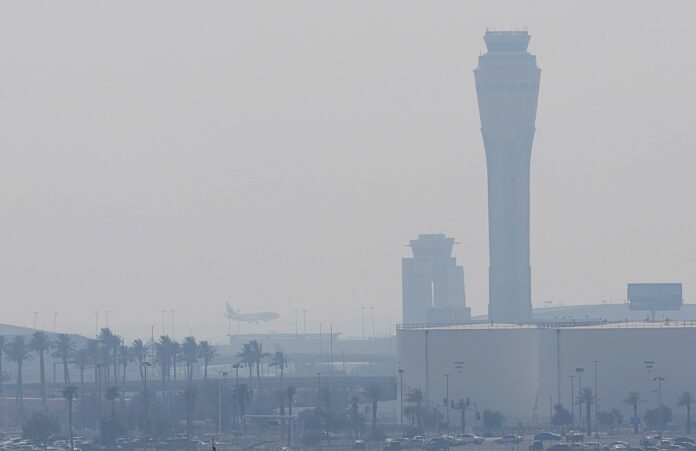Navigating the Turbulent Skies: The State of America’s Air Traffic Control System
America’s air traffic control system stands at a crossroads, desperately needing modernization yet mired in the complex realities of operational inertia. For over 25 years, this vital infrastructure has been crying out for updates, yet meaningful advancements remain elusive.
The Complexity of Overhaul
According to Michael Taylor, senior managing director at analytics firm J.D. Power, the core challenge lies in the system’s immense scale and complexity. A comprehensive upgrade presents considerable risks, with the aviation community clinging to the adage, "if it ain’t broke, don’t fix it." However, as Taylor warns, the reality is shifting — cracks in the system are starting to reveal themselves.
Warning Signs Emerge
Recent events have underscored the urgency of this situation. In April alone, air traffic controllers at Newark Liberty International Airport experienced radar outages twice within two weeks. These breakdowns led to FAA flight restrictions and a notable decline in passenger traffic, ringing alarm bells for an airport managing what Taylor describes as “the world’s most complicated airspace” around New York City.
Despite the current infrastructure’s ability to keep flights operational, Taylor argues it falls far short of its potential efficiency. “An upgrade has been overdue for decades,” he emphasizes, calling for expedited action in the face of mounting operational challenges.
Passenger Satisfaction: A Silver Lining
Interestingly, amid these sweeping challenges, passenger satisfaction in the airline industry is rising. J.D. Power’s 2025 North America Airline Satisfaction Study reveals an unexpected increase of six points in overall satisfaction from the previous year. JetBlue Airways claimed the top spot in the business class category, primarily due to its premium “Mint” service featuring elevated amenities.
In the same study, Delta secured the second position, thanks to nearly a decade of investment in employee training aimed at enhancing the onboard atmosphere. This effort has paid off, transforming passenger perceptions significantly. Meanwhile, Southwest Airlines continues to dominate the economy and basic economy segments by merging competitive pricing with truly friendly service — a notable achievement in an industry often grappling with staffing difficulties.
The Importance of Human Interaction
A curious finding from the satisfaction survey is that passengers prioritize human interactions over aircraft age or legroom. “Having a good attitude with the flying public is something that’s very hard to teach,” explains Taylor. Southwest Airlines has tackled this challenge head-on by hiring friendly and personable staff, creating a welcoming environment where passengers tend to feel valued and appreciated.
The Talent Gap: Air Traffic Controllers
While consumer satisfaction rises, the industry faces a looming challenge: a shortage of air traffic controllers. Although there has been a push to hire more controllers under the previous administration, experts like Dan Bubb from UNLV warn that the training process is long and complex. "We have to be patient,” he states, cautioning against hurrying inexperienced individuals into critical roles that could compromise safety.
NextGen: A Slow Journey Toward Modernization
As discussions pivot towards modernization, the Federal Aviation Administration (FAA) has been gradually implementing the Next Generation Air Transportation System, also known as NextGen. However, inconsistent federal funding has hampered progress. Bubb articulates the collective frustration within the industry: “It’s hard to overhaul the nation’s air traffic system when budgets keep getting cut.”
The Impact of Post-Pandemic Travel Trends
As travel trends shift, the phenomenon of "revenge travel" — where consumers prioritize trips after COVID-19 lockdowns — is beginning to wane. Taylor observes that travelers may become more budget-conscious, retreating from the previously enthusiastic spending habits they exhibited during the pandemic. He acknowledges that while this may not deter all travelers, it signals a return to more measured spending patterns.
Future Prospects for Travel
Despite concerns regarding the air travel industry’s future, experts like Bubb maintain that destinations such as Las Vegas will continue to attract visitors. “I think it will concern passengers,” he notes, but he also believes that the allure of popular travel destinations will persevere.
In this crucial time for America’s air traffic control system and the broader aviation industry, the path ahead will require a blend of innovation, patience, and renewed commitment to both infrastructure and passenger experience. The stakes are high, but with attentive leadership and strategic investments in modernization, the industry can look forward to improved skies ahead.
